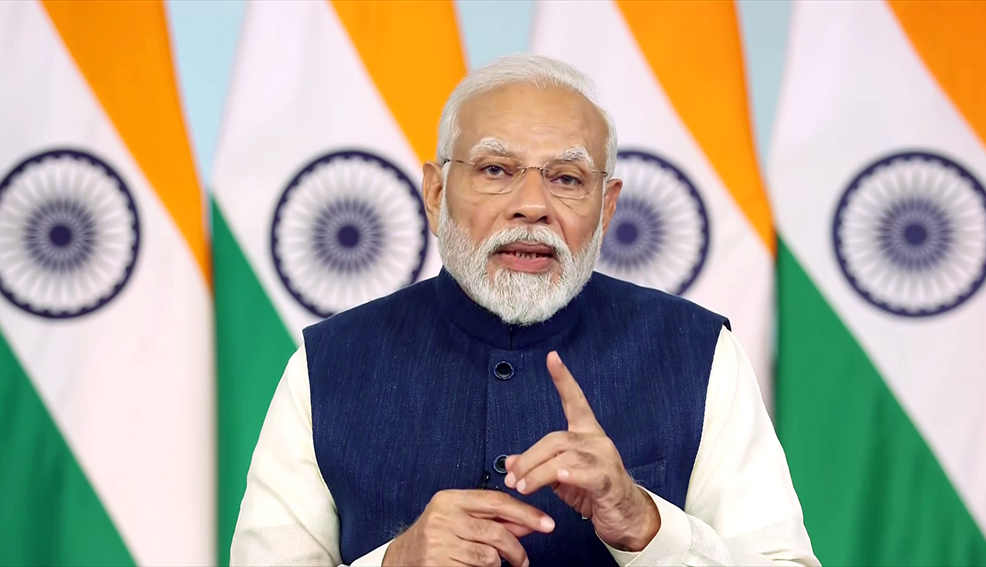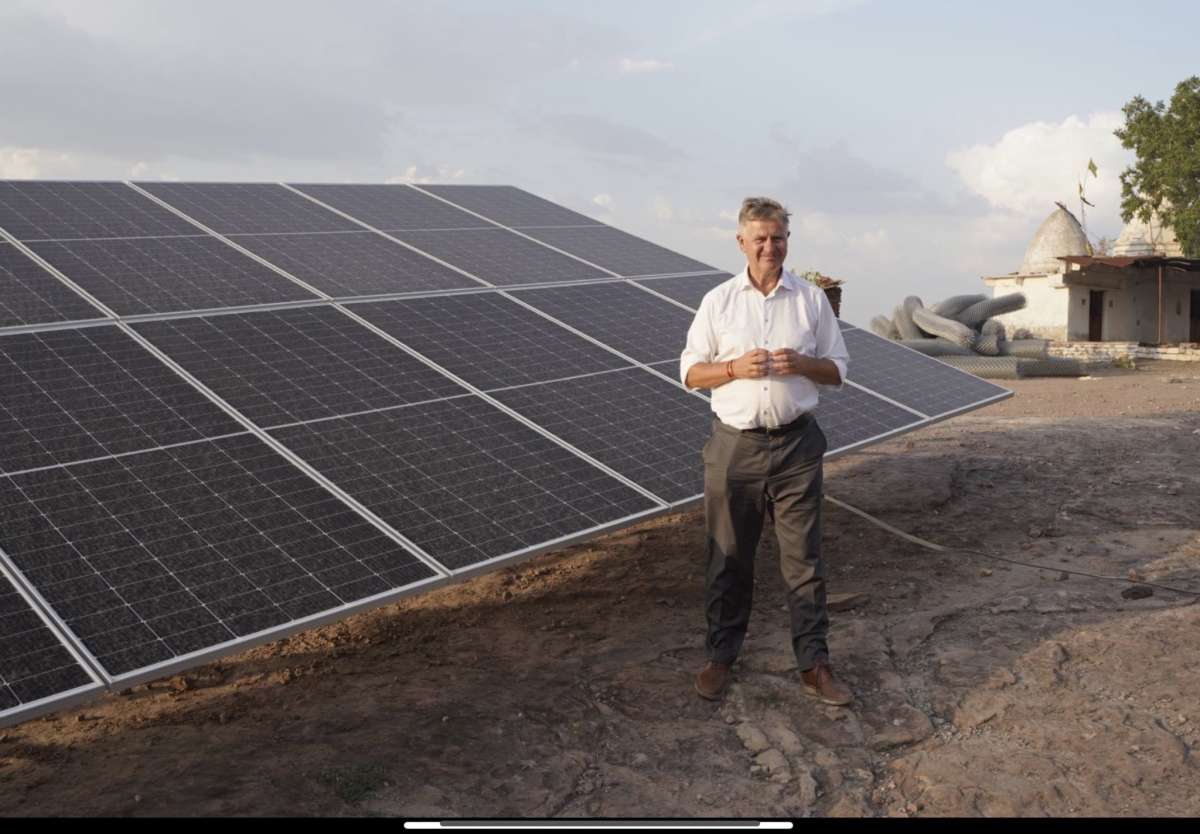Solheim believes the twin crises of climate change and biodiversity loss have led to a rapidly growing focus on forest conservation and restoration….reports Vishal Gulati
India showcases that “you can go green and provide fast economic growth at the same time”, feels former UN Environment Programme executive director Erik Solheim.
In a telephonic interview as countries gear up to take stock of the progress on decarbonization, loss and damage finance, and more at the upcoming UN COP28 climate summit in Dubai, Solheim said Prime Minister Narendra Modi’s Bharat has moved to the forefront of the struggle against climate change and environment protection.
“Modiji has launched numerous green missions for India — focusing on green hydrogen, green batteries, electric cars and more. The number of tigers in India has doubled over the last two decades. India showcases that you can go green and provide fast economic growth at the same time.”
Solheim, an experienced peace negotiator having acted as the main facilitator of the peace process in Sri Lanka from 1998 to 2005, emphasises the critical role that nature and biodiversity play in aiding mitigation and adaptation to the global crises.

“Restoring nature is absolutely central to our climate efforts. Green landscapes protect us against climate disasters and absorb emissions. China is the world’s biggest tree planting nation. But there is huge progress in India also.”
Madhya Pradesh Chief Minister Shivraj Singh Chouhan is planting one tree every day to inspire the people in his state. Telangana has increased its tree cover by seven per cent. Tamil Nadu is progressing fast, creating new protected areas.
Solheim believes the twin crises of climate change and biodiversity loss have led to a rapidly growing focus on forest conservation and restoration.
“We need to mobilize both governments and business. Indonesia last year saw zero deforestation, a fantastic result in the world’s second biggest rainforest nation.”
This is thanks to good laws by the government as well as strong action from the big private sector companies in paper and palm oil, businesses like RGE, one of the world’s largest producers of wood pulp.
The former Norwegian diplomat and politician who played a crucial role in convincing India to phase out single-use plastics said smallholdings farmers are on the frontlines of climate change.
“Carbon finance and the carbon market need to reach small-scale farmers. This can only happen if the farmers form associations to jointly approach the big institutions. Andhra Pradesh is a great example of a state which has prioritized small-scale, green and eco-friendly farming.”
Solheim, who was Executive Director of the UN Environment Programme between May 2016 and November 2018, believes the current representation of nature in the upcoming United Nations Climate Change Conference or COP28 agenda is sufficient.
“We need to bring the agendas of protecting mother earth and fighting pollution and emissions closer together. That will also create more engagement and inspiration.”
In the previous COPs there was inadequate climate and nature finance for developing countries, especially those whose ecosystems are most critical for climate.
“The developed world needs to step up and provide the finance they have promised. The US emission per capita up to now is 25 times higher than India’s. It’s obvious that the responsibility for causing the climate crisis rests with North America and Europe and other developed nations. At the same time, the developing nations who act like China and India are those most likely to be successful.
“They see climate as an opportunity to capture markets and create prosperity, bringing people out of poverty by going green. Indian company Ola has a slogan, “I love Tesla for the West, Ola for the Rest”.
According to Solheim, indigenous and local communities are the best protectors of nature and must be at the centre of any conservation model.
“I think Brazil is a good example in this regard. After President Lula came to power less than a year ago, deforestation in the Brazilian Amazon has been reduced by 60 per cent. This is because Lula empowers indigenous people to protect their land. When indigenous tribes can work with the state, it creates a very powerful combination.”
The COP28, under the UAE presidency, will be a milestone moment when the world will take stock of its progress on the Paris Agreement.
The first Global Stocktake will provide a comprehensive assessment of progress since adopting the Paris Agreement.
This will help align the efforts on climate action, including measures that need to be put in place to bridge the gaps in progress.

Leave a Reply